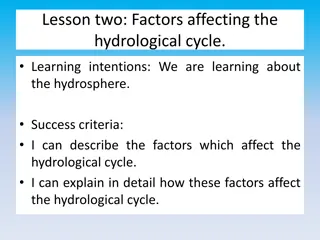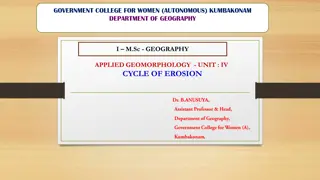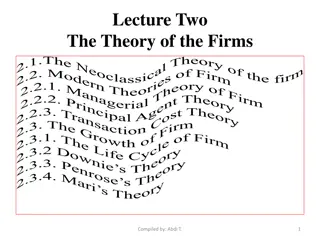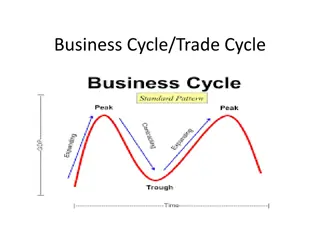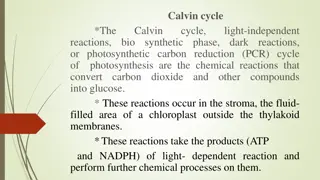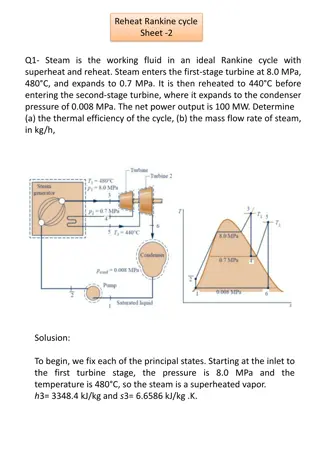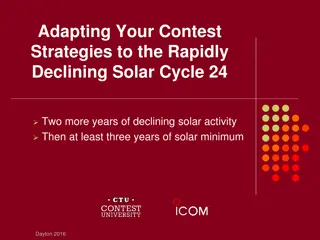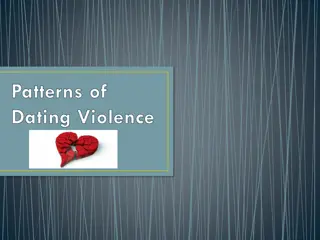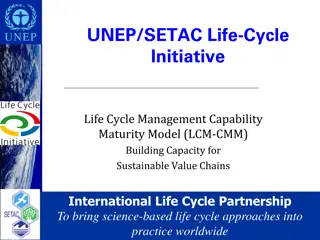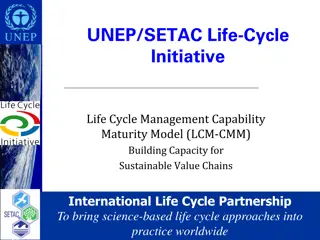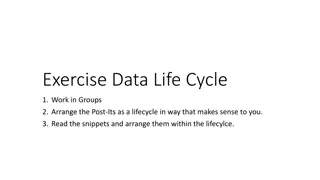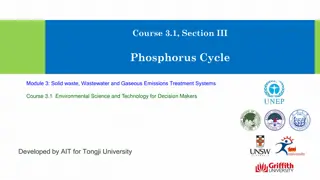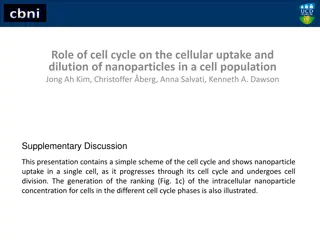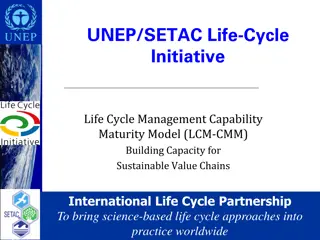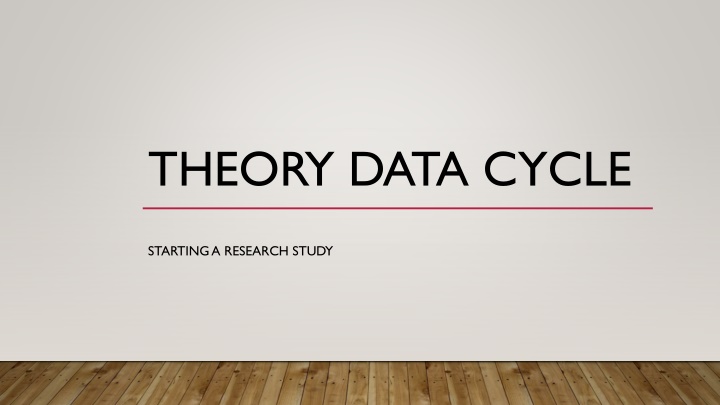
Research Study Essentials: Starting Your Journey with Purpose
Discover the purpose of research, learn how to identify research topics, explore sources of research topics, delve into the research process with a literature review, and understand the importance of reviewing literature with an open mind. Begin your research study on the right path.
Download Presentation

Please find below an Image/Link to download the presentation.
The content on the website is provided AS IS for your information and personal use only. It may not be sold, licensed, or shared on other websites without obtaining consent from the author. If you encounter any issues during the download, it is possible that the publisher has removed the file from their server.
You are allowed to download the files provided on this website for personal or commercial use, subject to the condition that they are used lawfully. All files are the property of their respective owners.
The content on the website is provided AS IS for your information and personal use only. It may not be sold, licensed, or shared on other websites without obtaining consent from the author.
E N D
Presentation Transcript
THEORY DATA CYCLE STARTING A RESEARCH STUDY
PURPOSE OF RESEARCH What is research? Investigation into a problem Exploration of relationships Collection of information with unbiased analysis and conclusions Why? Fills gaps in knowledge within a scientific discipline Resolves problems that aid in the treatment of illness or promote welfare of civil society Creates new ways of exploring a psychological concept
WHAT TO RESEARCH? Identifying Topic or Area of Interest First Step: Find a Research Area General Topic of Interest Meaningful pursuit Explore Previous research in that topic to identify unanswered questions to explore.
SOURCES OF RESEARCH TOPICS Personal Interests/Curiosities Life Experiences Challenges, Adversities Personal Insight Casual Observations Resolutions of Problems in the Field Basic Research: BuildingTheory Applied Research: Improve Clinical Practice
RESEARCH PROCESS Literature Review: Once topic is selected, the next step is to explore the extant research in the area and the outstanding questions left to explore. The literature: the mass of published information worldwide Your job is to identify a handful of studies directly related to your research idea. This sounds daunting, but cross-referencing and summaries can help.
STARTING A REVIEW OF THE LITERATURE Do your homework: collect background information. Read books and journal articles. Do not try to read everything. Read enough to gain a good grasp of your topic.
STARTING A REVIEW OF THE LITERATURE Keep an open mind. Begin with a general topic and let background reading lead you to a more specific topic. Be critical; ask questions as you read. Maintain a degree of flexibility. Focus, focus, focus. Develop one research question and find relevant background information. Take one step at a time.
PRIMARY AND SECONDARY SOURCES Primary sources: firsthand reports in which the authors describe their own observations Examples: empirical journal articles/theses Secondary sources: secondhand reports in which the authors discuss someone else s observations Examples: textbooks/introductory sections of research reports; meta-analysis GOOD PLACE TO START A LITERATURE REVIEW*********
THE PURPOSE OF A LITERATURE SEARCH Two basic goals: 1. To gain a general familiarity with the current research in your specific area of interest 2. To find a small set of research studies to serve as the basis for your research idea Find a set of published research reports defining the current state of knowledge KEY: Identify a gap in that knowledge base that your study will attempt to fill
NOTE TAKING: LITERATURE SEARCH Make note of subject words. List correct terms or subject words. These words identify and describe the variables in the study and the characteristics of the participants. Make note of author names. The same authors names encountered repeatedly are likely the current leading researchers in the field.
USING ONLINE DATABASES A typical database contains about one million publications. Search the database by subject word or author name Articles listed by the search may be: Brief summaries Abstracts Full-text
INFORMATION ABOUT PSYCINFO DATABASE PsycINFO is the American Psychological Association s (APA) definitive resource for abstracts of scholarly journal articles, book chapters, books, and dissertations. Largest resource devoted to peer-reviewed literature in behavioral science and mental health American Psychological Association (APA) offers video guide for using PsychINFO: www.youtube.com/psycinfo
INFORMATION ABOUT PSYCARTICLES DATABASE PsycARTICLES is the American Psychological Association s (APA) definitive source of full-text, peer-reviewed scholarly and scientific articles in psychology. Contains more than 163,000 articles from more than 80 journals published by the APA, the Educational Publishing Foundation (EPF), and from allied organizations
SCREENING ARTICLES DURING A LITERATURE SEARCH Ways to weed out irrelevant material: Use the title as your first basis for screening. Use the abstract as your second screening device. Look for a link to a full-text version. If the article still looks relevant, then read it carefully. Use references from articles you have already found to expand your literature search.
WHEN IS THE LITERATURE REVIEW COMPLETE? The search is completed when you: feel comfortable with your knowledge about the topic area, and have found a few recent research studies that are particularly relevant to your own interests. How many articles is enough? The key criterion is that the study (or studies) you find provides some justification for new research.
COMPONENTS OF A RESEARCH ARTICLE Critical Evaluation Questions Section Content Is the review complete and up to date? Are relevant or related topics not covered? Is the hypothesis clearly stated? Introduction Literature review Is the hypothesis directly related to the reviewed literature? Does the predicted outcome logically follow from the hypothesis? Hypothesis or purpose for study Specific prediction from hypothesis Can other specific predictions be made? Are the participants representative of the population being considered? If participants were restricted (e.g., males only), is it justified? Would different participants produce different results? Are there alternative ways to define and measure the variables? Method Participants Procedure Could alternative procedures be used?
COMPONENTS OF A RESEARCH ARTICLE Critical Evaluation Questions Section Content Were the appropriate statistics used? Exactly what is significant and what is not? Are the effects large enough to be meaningful? Statistics (descriptive and inferential) Results Do the results really support (or refute) the hypothesis? Are the conclusions justified by the results? Discussion Results related to hypothesis Justified conclusions Are alternative conclusions/explanations possible? Would other variables affect the results? Do the results have real-world applications? Alternative explanations Is there reason to suspect that the same results would not occur outside the lab? Would the same results be expected with different participants or under different circumstances? Applications Limits to generalization References List of items cited Is the list of references current and complete?
REVIEW: WHAT IS A GOOD HYPOTHESIS? What are the characteristics of a good hypothesis? Logical: the logical conclusion of a logical argument Testable: all of the variables, events, and individuals can be defined and observed Refutable: can be demonstrated to be false Positive: must make a positive statement about the existence of some effect or significant relatioship
WHAT HAPPENS AFTER THE LITERATURE REVIEW AND IDENTIFICATION OF THE HYPOTHESES? The next steps Specify how the variables will be defined and measured. Identify the individuals who will participate in the study, Describe how they will be selected and provide for their ethical treatment. These will be discussed in subsequent lectures


